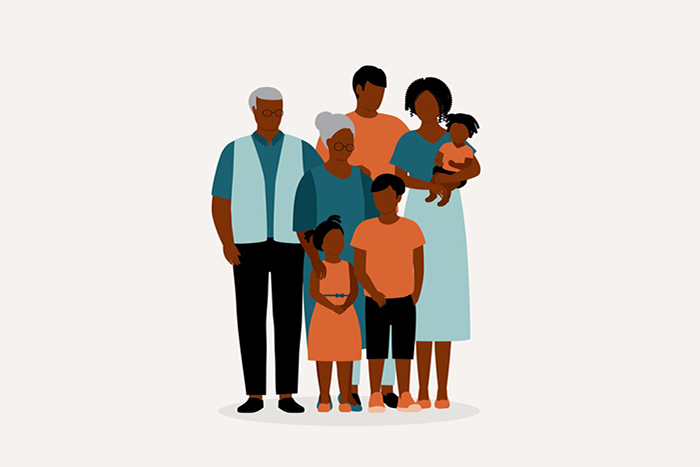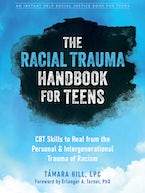By Támara Hill, LPC, author of The Racial Trauma Handbook for Teens
Do you believe you or your family have experienced racial and/or family intergenerational trauma? Sadly, I can attest to this within my own community and extended family.
I remember growing up in a middle-class, predominately White neighborhood wondering if I would ever be fully accepted. Although I had many peers who looked different from me, I still felt a divide and it wasn’t imagined. I also began to experience rejection from the Black community that caused pain and sadness. After being bullied and secluded because of how my mother chose to raise me and my brothers, I came to understand that the problem wasn’t in me, but rather the problem was a systemic and cultural problem. Once an individual experiences racial and social rejection repeatedly—oftentimes throughout the lifespan—they can experience social ostracism and racial exclusion that is a prerequisite to racial trauma.
According to the National Child Traumatic Stress Network, (nd), Black and mixed-race children who are bullied, rejected, or live in urban areas are at a high risk for developing post-traumatic stress disorder (PTSD). Black children living in racially and economically segregated communities are “more likely than children in other communities to live in poverty, to be placed in foster care, to be exposed to familial and community violence, to lose a loved one to violent death, to have a family member incarcerated, to experience contacts with the justice system, or to become homeless” (NCTSN, nd). Events such as these coexisting together for long periods of time and can lead to complex PTSD.
There are a few ways to determine if you (or someone you know) is impacted by intergenerational trauma. A few signs to look for include:
- Being okay with not being okay: Sometimes traumatized individuals stay quiet within their families about traumatic experiences for fear or exposing the truth, being rejected by their family, or having to relive the experience.
- Having years of secrets within the family: Intergenerational trauma is hard to talk about in some families, which leads to secrets and concealed truths.
- A pattern of minimizing or denying racial trauma: Because racism is hard to cope with, it is often easier to minimize the truth and move on without ever mentioning it.
- Patterns of internalized thoughts and feelings: The CBT Triangle, discussed in The Racial Trauma Handbook for Teens, explains the connection between thoughts, feelings, and behaviors which often causes rumination (i.e., obsessive thoughts about a negative event) and developing depression.
- A feeling of loss of safety: Repeated patterns of rejection in the community and racial trauma can either create or worsen a feeling of emotional detachment and numbness.
Children and teens who are struggling with intergenerational family and racial trauma need adults who can help them understand that the social and racial pressures of the world are not determinants of their future.
Reference:
National Child Traumatic Stress Network ( date). Complex Trauma: In Urban African American Children, Youth, and Families. Retrieved from, https://www.nctsn.org/sites/default/files/resources//complex_trauma_facts_in_urban_african_american_children_youth_families.pdf.
Támara Hill, LPC, is a licensed clinical child and family therapist, and an internationally/board-certified clinical trauma therapist who specializes in treating children, adolescents, and families who suffer from mood disorders, unresolved trauma, and disruptive behavioral disorders. She is founder of Anchored Child & Family Counseling in Pittsburgh, PA.



 2024 Peace Playbook: 3 Tactics to Avoid Clashes with Your Partner
2024 Peace Playbook: 3 Tactics to Avoid Clashes with Your Partner